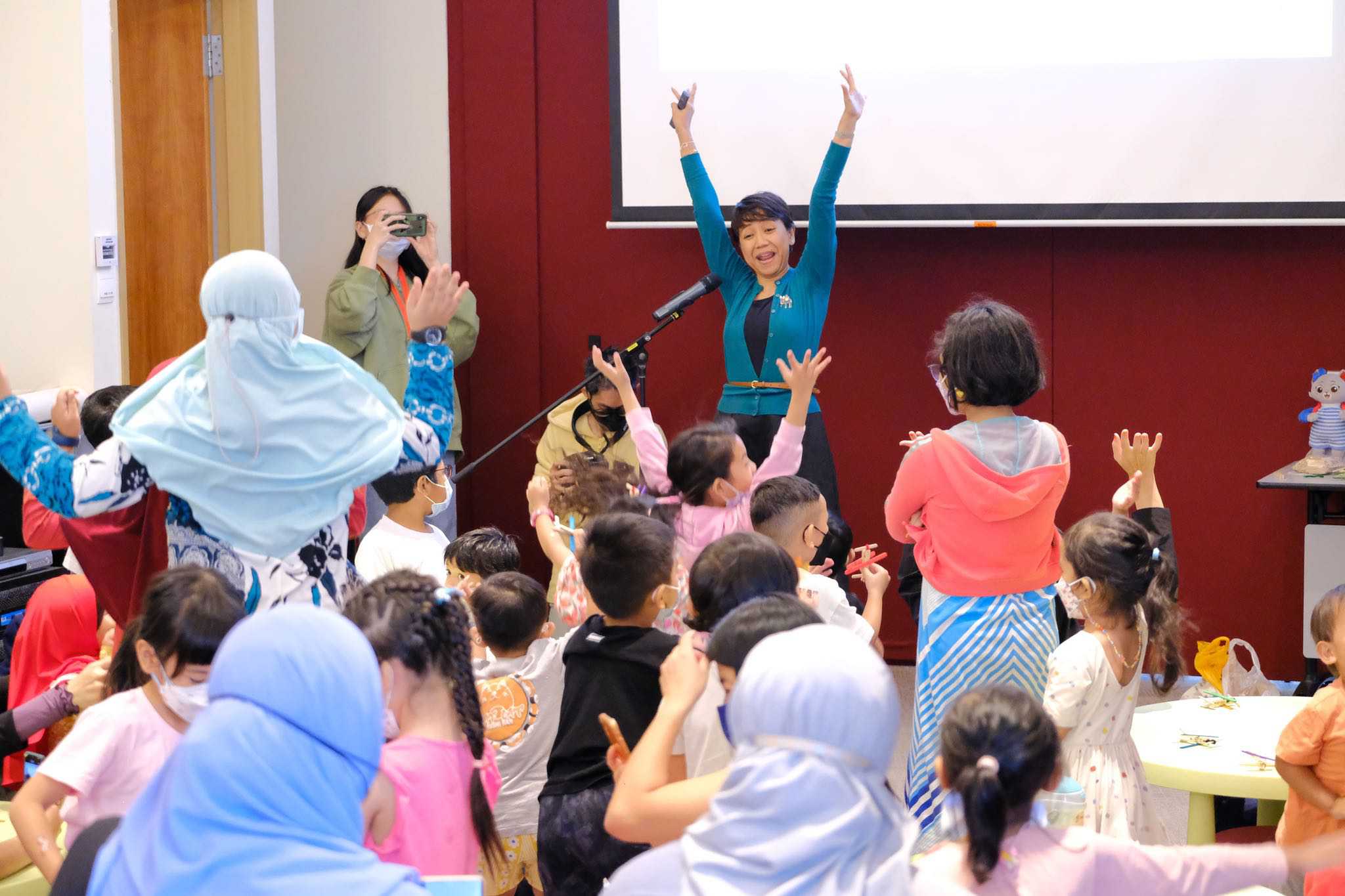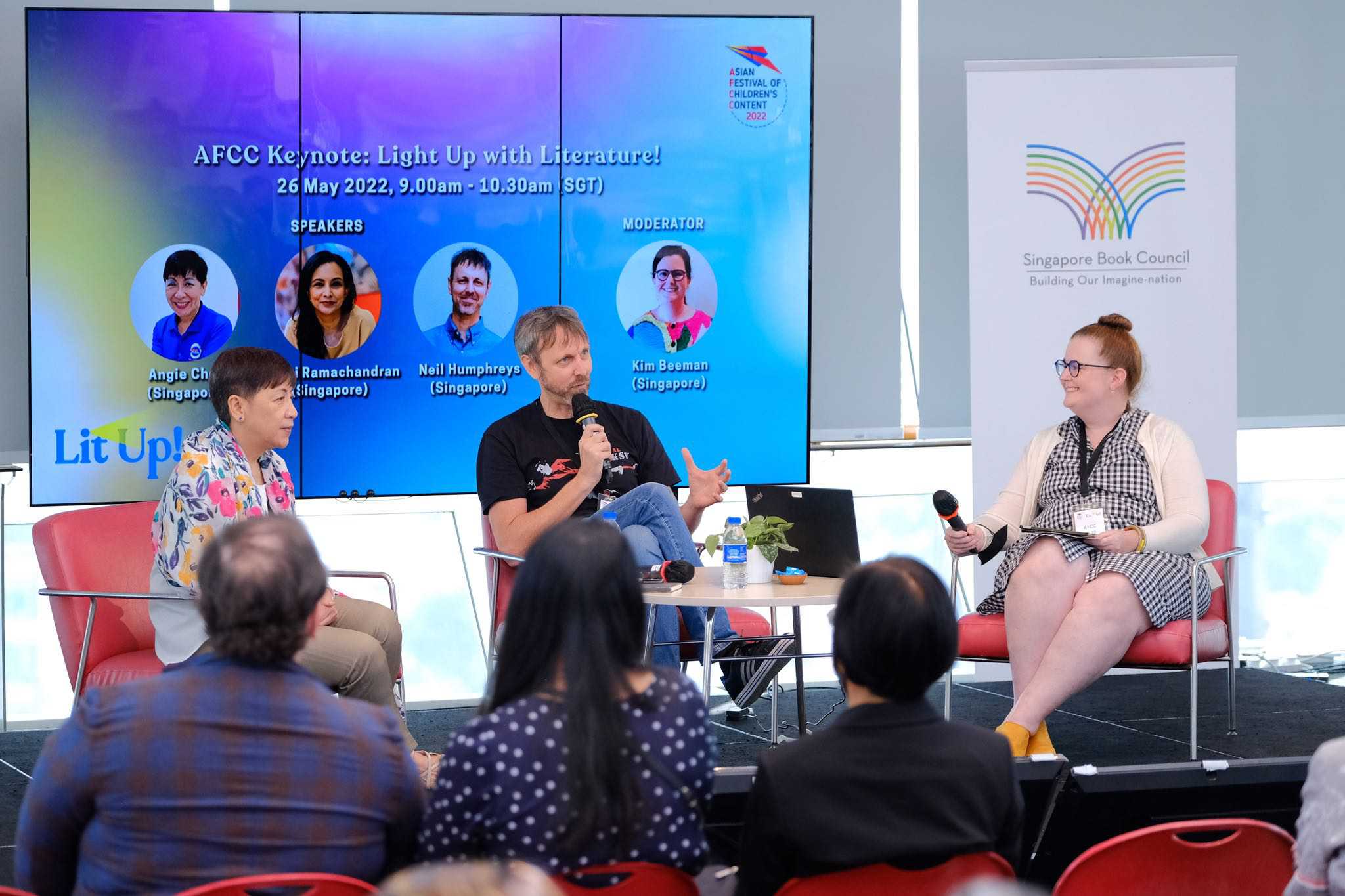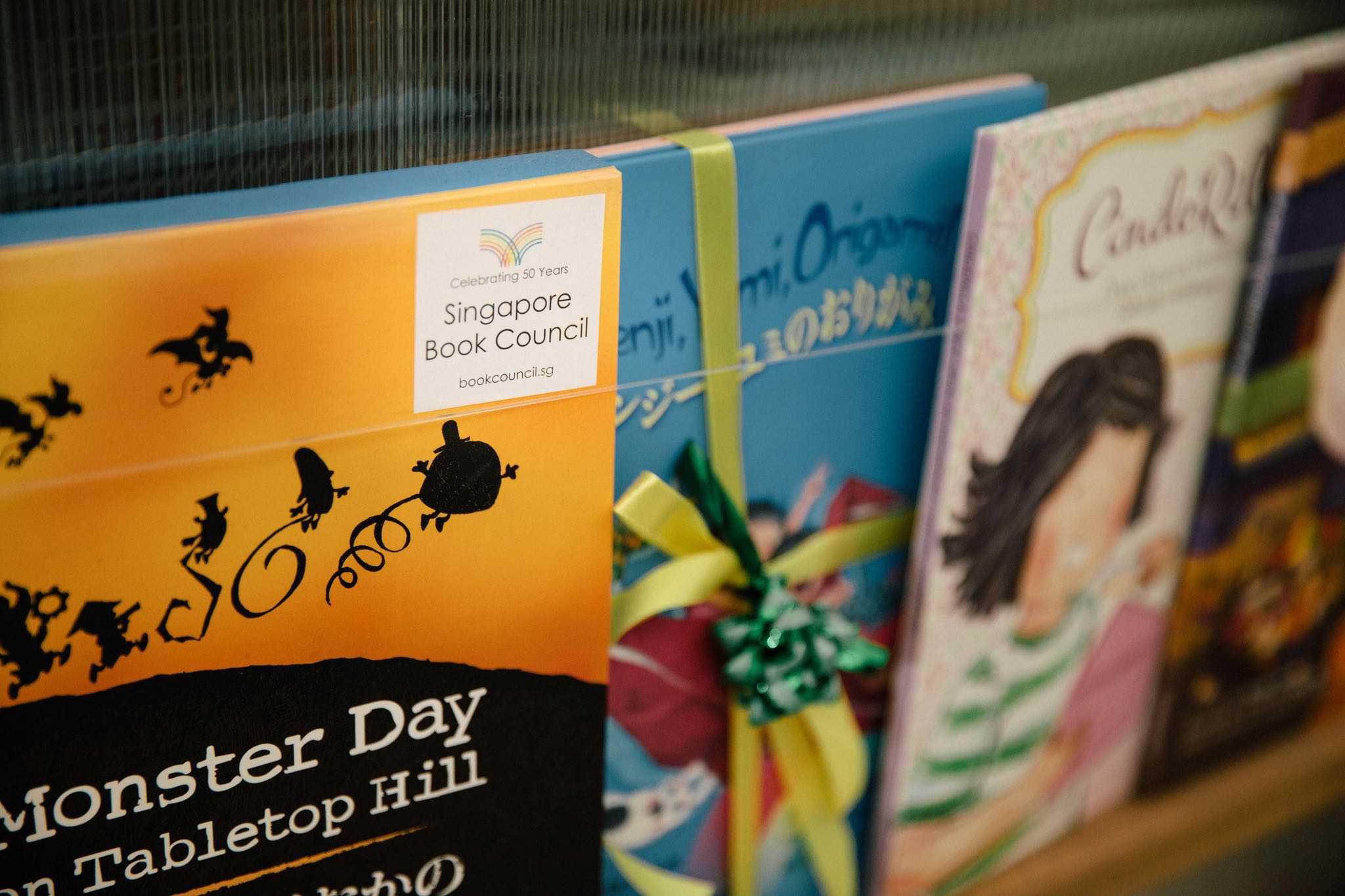
Organisation Transformation Grant Case Study
Singapore Book Council – Audience Database with Data Visualisation
Project Overview
The Singapore Book Council (SBC) is a 52-year-old organisation that supports a multilingual literary arts sector in Singapore. It organises over 100 events annually with a permanent staff strength of 7. It implemented digital transformation to enhance audience engagement, raise organisational productivity, and increase its revenue.

Challenge
SBC organises more than 100 events annually with a permanent staff strength of 7. It was saving audience data gathered from events across multiple platforms, resulting in disparate and piecemeal audience data. Without consolidated and integrated data, SBC was not equipped to use or analyse audience response effectively to strategise its future programmes.
The Vision
SBC aimed to enhance audience engagement and raise the proportion of its revenue through events and programmes by developing its capacity for actionable insights on its audiences. This involves having a consolidated 360-degree view of their audience across all interaction points with SBC, which will enable better understanding of audience profile and segmentation. This will be followed by a recommendation engine that suggests literary products and SBC’s programmes based on audience profiles.

Outcomes in a Nutshell
Historical audience data consolidated and integrated into a single platform, Microsoft Power BI
Data insights were used to plan a flagship programme in May 2022
Impact
SBC is now able to visualise integrated historical data of the organisation’s revenue. These insights on revenue trends crucially inform the organisation’s business decisions.
Equipped with insights on revenue trends and audience sentiment, SBC is now looking forward to the next phase of its digital transformation, which is to develop a recommendation engine that can suggest literary products, SBC’s programmes, and information on Singapore literature to users based on analysis of their profiles and consumer behaviours.
3-2-1 Learnings
“Making sound business decisions based on insights that technology provides.”
3 Must-Dos
Things you must absolutely get right
- Do your homework on the technology. SBC learnt during the project that the selected technological solution had limitations in consolidating digital marketing metrics. Be extremely judicious in understanding the functions of the software.
- Make plans to circumvent limitations and pitfalls as early as possible. “We identified that the data integration process had to be done manually. Knowing this allowed us to implement change management processes as we prepared several training sessions with the end users in familiarising them with the manual process of uploading data from their programmes,” said Ethan Leong, Head of Marketing for SBC.
- Provide more time than you think you need, especially if manual data compilation is involved.
2 Do-Next
Critical next steps to sustain the effort
- Ensure that Exploration is done with the chosen software. Check that it has all the features that are required and if there is room for future improvement and enhancements.
- Consult advisor to explore the next phase of the organisation’s digital transformation beyond the implementation of the data system.
1 Do-Differently
What they wished they had done differently from the start
- To find a fuss-free and automated technological solution that does not require a manual Extract-Transform-Load (ETL) data integration process.
Challenge
The Singapore Book Council (SBC) is a 52-year-old organisation that supports the multilingual literary arts sector in Singapore. A permanent staff of 7 organises more than 100 events annually. Its flagship event is the Asian Festival of Children’s Content.
SBC used to save audience data gathered from its events across multiple platforms, including paper records, excel spreadsheets, EventBrite, and MailChimp. SBC staff had to cross-reference multiple sources of data to extract information about their past programmes—an inefficient practice that yielded inaccurate results. Without accurate and consolidated historical audience data, SBC could not analyse audience response to plan its future programmes effectively. Accurate audience data would help SBC project audience sizes and increase its operational efficiency.
Like many other arts organisations, SBC does not have an IT or data analyst but relies on a group of corporate volunteers with IT backgrounds who offer pro-bono services to support SBC’s digitalisation plans. Hence, it was crucial to have an easy-to-use audience database system.
The Vision
SBC embarked on a journey of digital transformation with a single motivation—to raise the proportion of its revenue generated by events and programmes. The first part of the envisioned transformation is to develop a capacity for actionable insights on its audiences. This means having a consolidated 360-degree view of their audience across all interaction points—purchases, feedback, email subscriptions, website visits and social media engagement. Such data will enable better understanding of audience profile and segmentation.
The second part of the envisioned transformation is to increase engagement levels of its programmes by developing a recommendation engine that can suggest literary products, SBC’s programmes, and information on Singapore literature to users based on analysis of their profiles and consumer behaviours. In the future, this work will also inform other areas of development, such as a SBC loyalty or membership programme.
The Journey
Discovery. Learning-by-Doing. Overcoming Challenges.

System
The first phase of SBC’s digital transformation was to equip SBC with the tools to analyse audience behaviour to enable the application of targeted marketing and increase conversions to its programmes.
The first step was to consolidate all of its historical audience data into a central repository database, accompanied by a set of data visualisation dashboards for easy analysis.
SBC went with a data analytics vendor, ClayOPS, that was confident of developing a system within 6 months. The chosen system was Microsoft Power BI, which SBC assessed to be a useful platform. A manual Extract-Transform-Load (ETL) data integration process had to be carried out, which required SBC programme managers to manually collate and update data before it could be ported into the software, where end results were presented in dashboards and reports.
The database repository and dashboard was leveraged for SBC’s flagship festival, the Asian Festival of Children’s Content (AFCC), which took place in May 2022. SBC collected real-time feedback from its audiences as they completed online submission forms. The system also enabled SBC to improve its communication to its speakers, moderators and ticket holders by utilising custom tags on the platform to group and send user-specific content to them, raising the organisation’s productivity. SBC was previously copying contacts from excel sheets and creating new sending groups on MailChimp to contact its various audiences.
Based on historical data (from 2012 to present), AFCC’s target audiences largely consist of librarians, teachers and academics, followed by children’s book writers and animators. AFCC’s hybrid approach will also open doors to new market segments in the Philippines, the United States, India, Malaysia and Indonesia, countries where AFCC’s website experienced the highest online visitorship.
Ethan Leong, Head of Marketing for SBC, said that the first phase of the project went “partially as planned”. SBC eventually learnt that the software had limitations in consolidating digital marketing metrics. However, “[implementing the Power BI solution] enabled the organisation to have a better overview of its revenue trends and informed better business decisions,” said Ethan.
For example, SBC was able to project the consumer spending habits of AFCC, based on historical data from previous festivals. “We were able to observe that there was an influx of ticket sales close to the end of each promotion period. This allowed us to make informed decisions in pushing for ticketed events which we could anticipate had less consumer interest.”
SBC is now looking forward to the next phase of its digital transformation, which is to develop a recommendation engine that can suggest literary products, SBC’s programmes, and information on Singapore literature to users based on analysis of their profiles and consumer behaviours.
People
The project team met its fair share of challenges. “We struggled with understanding data analytics terminology and tech adoption,” shared Ethan. The challenges included understanding the capability and functions of the proposed software and the ways to use it. To overcome these, SBC tapped on its pool of volunteers, including frequently consulting a corporate volunteer with expertise in analytics and Big Data. It also consulted data analysts from NCS Singapore on a pro-bono basis.
The second challenge was in terms of staff bandwidth. As with many arts organisations, SBC ran a lean, multi-tasking team. Ethan was the only person who could work on the transformation project, and he was also the only dedicated person in the organisation for marketing. He had to apportion between 20% to 30% of his time for the digitalisation project, which led to a momentary dip in the organisation’s media marketing efforts. This project surfaced the importance of a role dedicated to marketing and digitalisation. As a result, SBC created a Head of Marketing position, with the organisation’s digitalisation plans parked under this portfolio.
The project also resulted in a change in SBC’s culture. “We noticed SBC staff being more open to referring to historical data, in order to understand and improve the quality of our programmes,” observed Ethan.
Reflections
Apprehensive, frustrated, helpless, excited, determined—SBC used these words to describe their experience of the transformation journey. “The high point was seeing the product come to fruition and being able to visualise the historical data of the organisation’s revenue,” Ethan said, adding that making sound business decisions based on insights that technology provides is a crucial step for SBC in moving towards greater financial stability.
This project has been supported by NAC's Organisation Transformation Grant. For more information and resources on NAC's grant schemes, please visit: https://www.nac.gov.sg/



